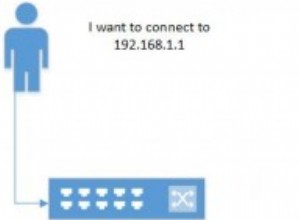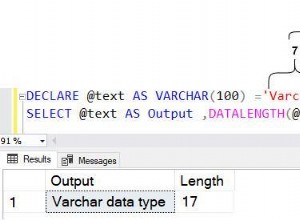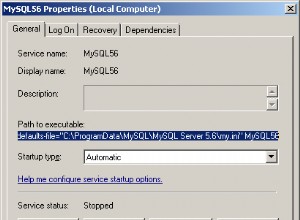Parece que la solución fue establecer la zona horaria UTC para la conexión JDBC (en lugar de JVM):
spring.jpa.properties.hibernate.jdbc.time_zone=UTC
y se basa en el uso de Instant por mantener el valor en el lado de Java y con created_at campo con tipo DATETIME en MySQL y H2.
El código kotlin resultante abreviado es:
@Entity
data class SomeEntity(
val createdAt: Instant = Instant.now() // default created date is current UTC time
)
val dateTimeFormatter = DateTimeFormatter.ofPattern("yyyy-MM-dd H:mm:ss")
createdAt = LocalDateTime.parse("2012-11-30 16:13:21", dateTimeFormatter).toInstant(ZoneOffset.UTC)
Ideas extraídas de comentarios de "Joop Eggen", esto y esto artículo.
Bonificación
Supongo que si estás leyendo esto, es posible que también necesites ayuda para depurar consultas SQL.
TRACE_LEVEL_FILE=2 y TRACE_LEVEL_SYSTEM_OUT=2 a la cadena de conexión (ver aquí
):
spring.datasource.url=jdbc:h2:mem:dbname;TRACE_LEVEL_FILE=2;TRACE_LEVEL_SYSTEM_OUT=2;
spring.jpa.properties.hibernate.show_sql=true
spring.jpa.properties.hibernate.use_sql_comments=true
spring.jpa.properties.hibernate.format_sql=true
logging.level.org.hibernate.type=TRACE
SET GLOBAL general_log = 'ON';
SET global log_output = 'table';
select * from mysql.general_log ORDER BY event_time DESC;




